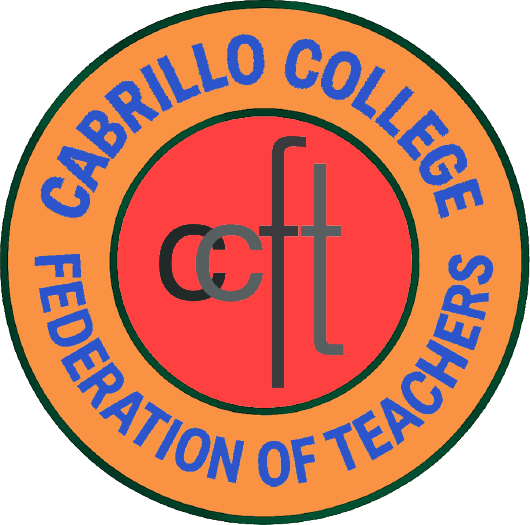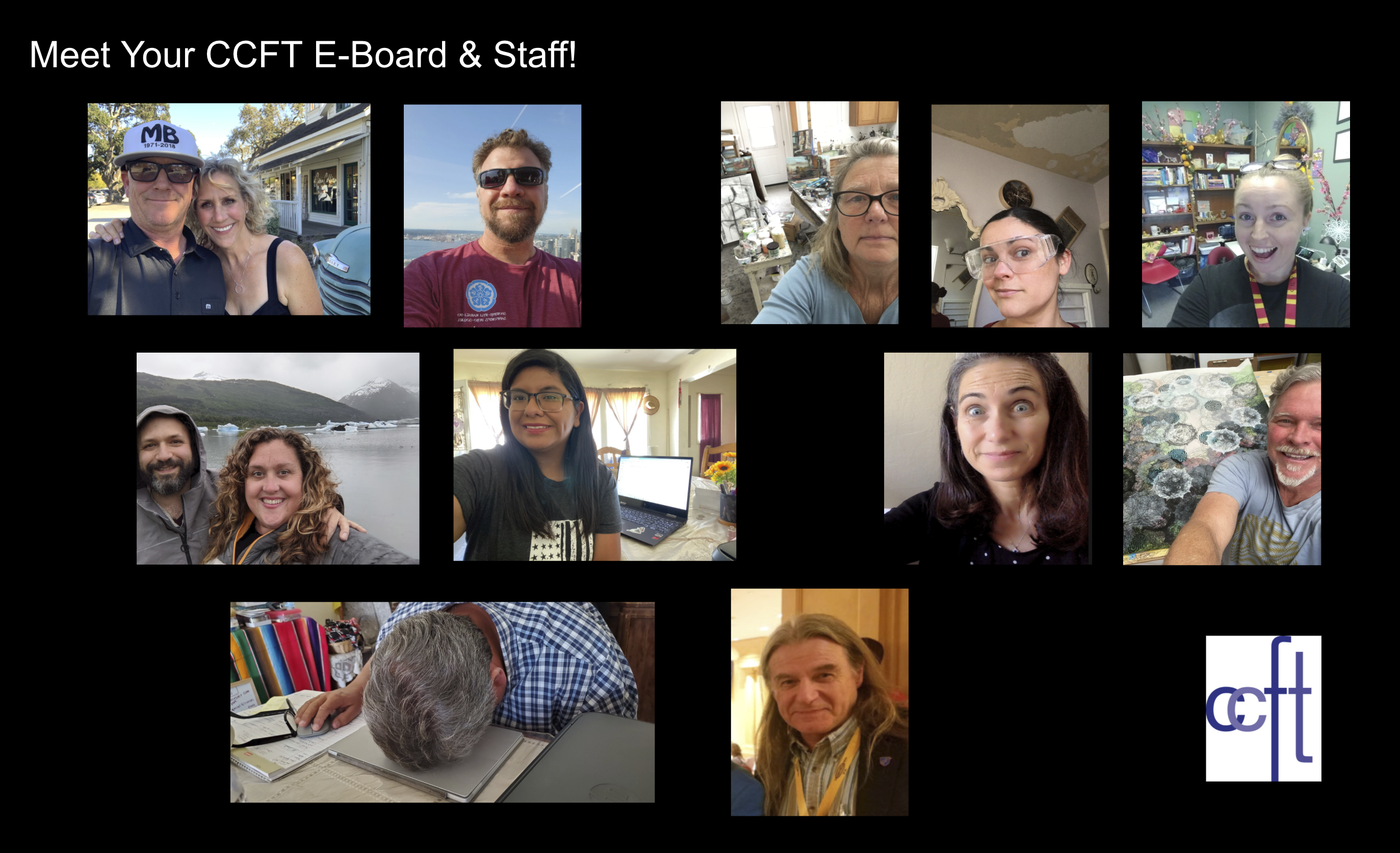by Rachel Mitchell, Anthropology Instructor, CCFT Adjunct Chair.
A heartfelt thank you to my fellow faculty who allowed me to share these glimpses of their personal and professional lives with you. I hope you have enjoyed reading them as much as I have enjoyed compiling them. In solidarity, Rachel

I was so happy to spend a lovely, warm Friday afternoon at the beginning of the semester chatting with our colleague and new Watsonville Council rep, Martín Garcia outside of the Solari buildings at the Watsonville Center. A fellow Cabrillo alum, Martín recounted how Cabrillo became a place of belonging and comfort for him anchored in the community formed through the Puente program, working as a student in the Extended Opportunity Programs (EOPS), as a tutor for English 100 in the Integrated Learning Center (ILC), and from his close interactions with counselors, mentors, teachers, students, and groundskeepers as he spent the majority of his time on campus during his student days. Martín was especially influenced by counselor, Mario Garcia, English instructor and fellow unionist, Julio Leal, and English instructor, Tom Marshall. Martin would go on to UC Berkeley and was hired as full time English faculty in 2019.
Martín was feeling optimistic at the beginning of the semester and excited about the momentum for establishing an Ethnic Studies Department and hopefully, a full time hire to lead it. We talked about how this is a major step towards Cabrillo’s efforts in becoming a Hispanic-Serving/Enhancing Institute and how the significance of decolonization and liberation oriented curricula for student self-discovery and empowerment cannot be underestimated.
This has become especially relevant in the context of the pandemic. Martín says that one of the important lessons he has learned during this time has been the different ways in which trauma manifests and how it can be triggered, including through the college experience, and how this impacts learning and a sense of belonging. Martín is sensitive and responsive to the systemic and personal traumas that surface with our students, and is committed to a pedagogy of care that relies on the centering of humanity through deep listening and empathy.
Reflecting on teaching over the past year and a half, Martín felt that the transition to fully online teaching will ultimately prove beneficial as it forced so many of us to learn how to use and optimize Canvas, and to grow and think through pedagogy in a different way which will be useful even when we return to in person classes. For him, this has meant leaning into multi-media a bit more and encouraging his students to engage with material through different media, such as animated movies or Ted Talks, or including assignments that are not exclusively essays.
Martín shared that one piece that has been more challenging in the online learning format is the more intimate and step by step scaffolding process involved in reading apprenticeship. When he teaches in person, Martín helps students build their writing skills in a playful way by reading children’s books, where there are pictures, along with words, to help make connections between what is being expressed. This helps his students see how writing simultaneously builds upon and creates a particular mental image or picture.
When talking about his personal passions, Martín shared his fascination of and admiration for the Mayans, exploring indigeneity and the variation and complexity of American identities for those with roots in indigenous Mexico and North America. Retracing his own indigenous history through his maternal grandmother (Otomi) and his paternal grandfather (Cora), has helped him feel more connected to his ancestors, and has been a tremendous source of strength as he learns about and finds appreciation in indigenous traditions and worldviews. It’s not surprising that this shows up in Martín’s teaching as he integrates both cultural studies, and the type of ancestor he would like to be.
This part of our discussion very much reminded me of the passage from Luis Valdez’s poem, Pensamiento Serpentino, which draws on the Mayan philosophical tradition known as In Lak’Ech:
Tú eres mi otro yo / You are my other me
Si te hago daño a ti / If I do harm to you,
Si te amo y respeto / If I love and respect you,
Me hago daño a mi mismo / I do harm to myself
Me amo y respeto yo / I love and respect myself
I am grateful for Martín’s passion and compassion, and the reminder that co-liberation is inextricably bound to our shared humanity. What a powerful message in these times.








